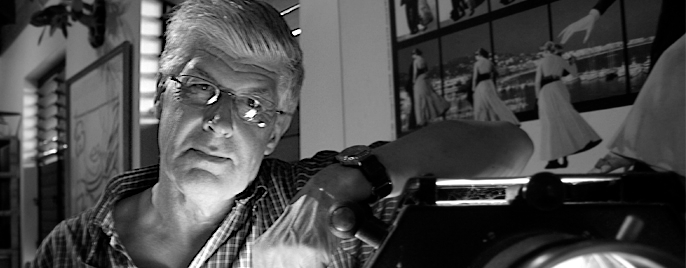Regarded as one of the leaders of the Australian film industry, Anthony Buckley began his career as a laboratory assistant and later as a film editor with the Sydney newsreel company Cinesound. Through the 1960s he edited many notable feature films including Michael Powell’s Age of Consent, Ted Kotcheff’s Wake in Fright and Rudolf Nureyev’s Don Quixote.
As a documentary filmmaker his Forgotten Cinema helped influence the government to support the renaissance of the Australian film industry in the late 1960s. He then independently produced and directed a film on the life of Frank Hurley — Snow, Sand and Savages.
As a feature film producer, he began producing in 1975 with the internationally acclaimed Caddie, winner of 14 awards including the San Sebastian Jury Prize for Best Film. This was followed by The Irishman, The Night The Prowler, The Killing of Angel Street and Kitty and the Bagman. Bliss was selected in competition at the Cannes Film Festival in 1985 and was winner of Best Film in the 1985 Australian Film Awards. In 1986 Tony produced the television mini-series The Harp in the South and in 1987 the sequel, Poor Man’s Orange, both ratings winners for the year. Then came the mini-series The Heroes for TVS Films UK. In 1990 he produced Mr Edmund for the Australian Children’s Television Foundation and in 1991 the sequel to The Heroes, Heroes II — The Return, again for TVS Films UK.
In 1977 Tony was awarded the Order of Australia for his services to the industry. He is a past President of the Screen Production Association of Australia and formerly Deputy Chairman of the Australian Film, Television and Radio School, and has been an Australian Film Commissioner.
He has also been on the Council of the National Screen and Sound Archive. In the 1990s he produced the documentary Nazi Supergrass for director David Bradbury; Celluloid Heroes, Film Australia’s four-part series to celebrate the centenary of Australian cinema; Tracey Moffatt’s first feature film Bedevil, selected for Cannes 1993; and George Whaley’s feature On Our Selection.
In November 2000 his services to the industry were acknowledged with two awards — the Australian Film Institute’s prestigious Raymond Longford Award and the National Screen andSound Archive’s Ken G. Hall Award in recognition of his services to screen preservation. In August 2003 he was awarded the Brisbane Film Festival’s Chauvel Award, completing a unique trifecta of filmic honours. He was President of the Australian Cinema Pioneers Association in 2002 and is currently Patron of the Motion Picture Industry Benevolent Society and was a director of the Film Finance Corporation 2003 to 2007. Tony was awarded an Honorary Degree, Master of Arts – Filmand Television, in April 2005 at the Australian Film, Television and Radio School.
In 2010 the Screen Producers Association of Australia (SPAA) awarded him a Life Membership Award.
